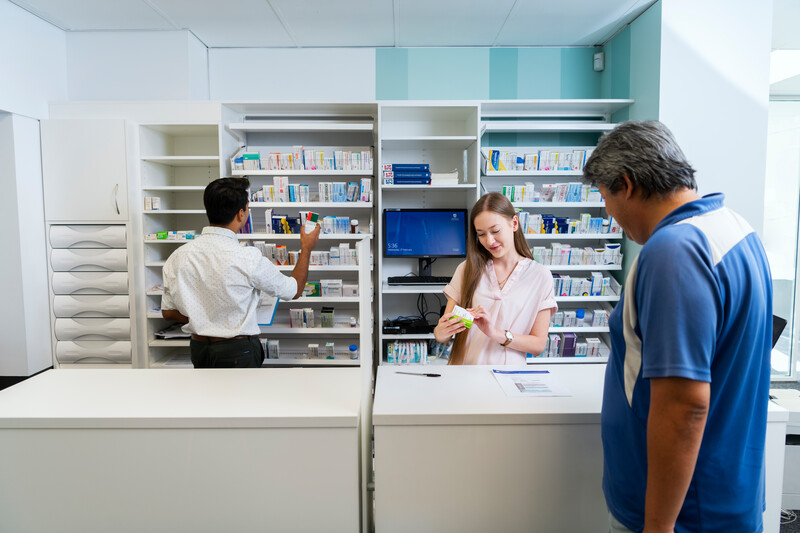The problem
For many students, starting a PhD in their 30s or early 40s coincides with an already busy stage of life. Family responsibilities and career pressures can make it difficult to find the time, focus and resources needed to fully commit to the demands of doctoral study.
The solution
To counter this challenge, the Australian Government introduced the National Industry PhD Program, which supports highly capable industry professionals to undertake PhD projects in partnership with a university while retaining industry employment and salary benefits.
A pharmacist by training and the statewide Education Lead for SA Pharmacy, Sally Marotti is undertaking a National Industry PhD through UniSA while continuing her work, allowing her to lead workforce development across South Australia’s public hospital pharmacy sector.
For Ms Marotti, choosing a National Industry PhD over a traditional PhD was a practical decision – and a philosophical one.
“I wouldn’t have done a PhD if it meant leaving my job,” Ms Marotti says.
“I have three children, financial responsibilities and a leadership role I care about.
“This model means I can stay embedded in the workplace, keep my research grounded in reality and continue leading change while I study.”
Ms Marotti’s research centres on a concept known as Entrustable Professional Activities (EPAs) – a framework that helps health educators make informed decisions about how much supervision a learner needs in real-world settings.
“We've used EPAs in pharmacy for years now, but we’ve started to notice barriers,” Ms Marotti says.
“Some health care professionals really struggle to let learners practise to their full scope. My PhD is about understanding why that is, and how to change it.”

Ms Marotti’s project is deeply translational by design: her findings are not destined to sit on a library shelf but rather are being actively applied to the healthcare industry in real-time.
“This research came out of a real-world problem, and, because I’m still in the workplace, I can start applying the solutions straight away. It’s embedded impact.”
“Our system is overloaded. We have got hundreds of patients in our emergency departments, but not enough people to see all the patients.”
“Our research enables healthcare professionals to step back and allow our less experienced staff to carry out their work more autonomously and safely.”
“In turn, the less experienced staff grow in confidence and are in a position to do what they have been trained for, faster.”
From statewide policies and supervisor workshops to national working groups, Ms Marotti is shaping how healthcare educators across disciplines support learner development and autonomy.
She’s already influencing the implementation of EPAs beyond pharmacy, including in medicine and occupational therapy.
Additionally, her leadership roles across SA Health, the Australian Pharmacy Council and SA Medical Education and Training (SAMET) enable the ripple effects of her research to be both immediate and wide-reaching.
Ms Marotti is also driven by the desire to lead by example.
As SA Pharmacy’s Director of Research, she sees the value of research culture first-hand and wants to inspire early-career pharmacists to explore academic pathways.
She also believes the National Industry PhD model offers a powerful way to connect research and real-world impact – particularly for professionals further along in their careers.
“We have around 14 industry-style PhDs running now within SA Pharmacy,” Ms Marotti says
“I wanted to show that it’s possible – and vital – to keep learning and contributing through research at any stage of your career.
“There used to be this disconnect: people would leave the profession to do a PhD, and sometimes they wouldn’t come back.
“This model keeps professionals in the workplace, working on the problems they know best.”
For prospective PhD students, especially those already working in industry, Ms Marotti’s journey is proof that there’s more than one way to pursue a doctorate – and that staying embedded in the workforce is a strength, not a limitation.
Find out more about the Australian Government’s National Industry PhD Program
Contact the Enterprise Hub
Get in touch with us to find out how we can support your business needs.
Make an enquiry online or call us to discuss your idea




